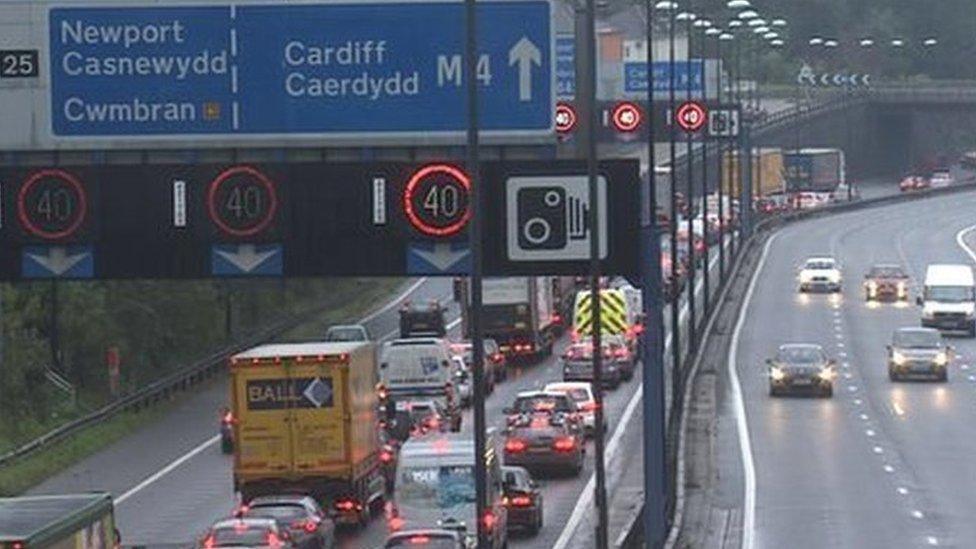Inquiry into £1.4bn M4 relief road ends after 83 days
- Published
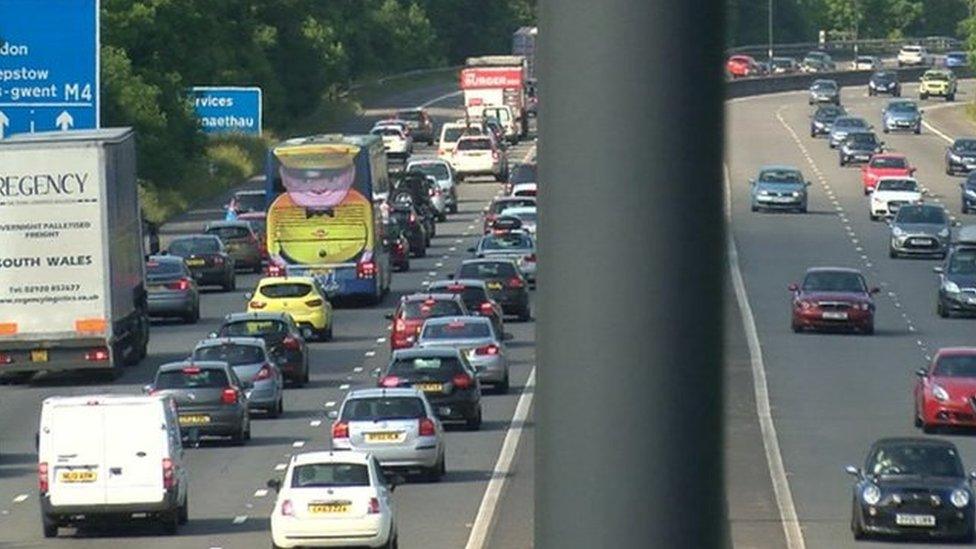
An inquiry into plans to build a 14 mile (23km) M4 relief road south of Newport has ended after a final submission from Welsh ministers.
The Welsh Government's QC, Morag Ellis said traffic congestion was a "pressing problem demanding a solution".
But Future Generations Commissioner Sophie Howe warned ministers could be setting a "dangerous precedent".
The inspector's report is expected to be published by the end of 2018, BBC Wales understands.
The inquiry began in February 2017 and it has been suggested the report could be up to 500 pages long.
On the inquiry's 83rd and final day, the 272-page submission responded to objections by those opposed to Welsh ministers' preferred route and dismissed alternative routes put forward in evidence to the inquiry.
Ms Ellis told the inquiry: "The evidence heard at this inquiry proves that there is a pressing problem demanding a solution, that the only practical solution is one which involves an increase in road capacity and that the scheme is preferable to the various alternatives which have been advanced."
"Furthermore, with the removal of the Severn crossing tolls [at the end of 2018], the economic and traffic case for the scheme is strengthened."
Closing the inquiry the inspector, William Wadrup, said he and his team would "go away and do our duty" but warned his report "will take many months" to write.
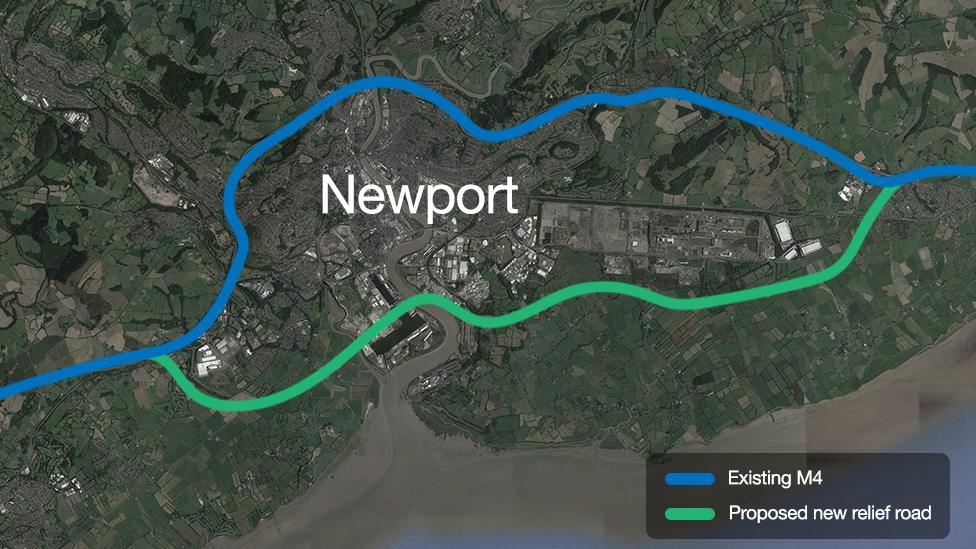
This map shows the route of the proposed M4 Relief Road - the "black route" is in green
Figures from the UK government's Department for Transport (DfT) last year suggested just halving the tolls could increase traffic by up to 17% by 2028.
Ms Howe, who has a legal duty to advise Welsh ministers on whether government projects offer the best deal for future generations, is opposed to the project and said ministers could be setting a "dangerous precedent" in the way they have interpreted the Wellbeing of Future Generations Act, external, 2015 legislation to improve Wales' social, economic, environmental and cultural well-being.
But the Welsh Government submission said "suggestions to the effect that the scheme is contrary to the Future Generations Act are ill-founded".
Last week environmental regulator Natural Resources Wales' said it still had "significant issues" with the Welsh Government over the plans.
These included "direct and indirect effects" of the project on wildlife habitats and four sites of special scientific interest (SSSIs) on the Gwent Levels.
- Published28 March 2018
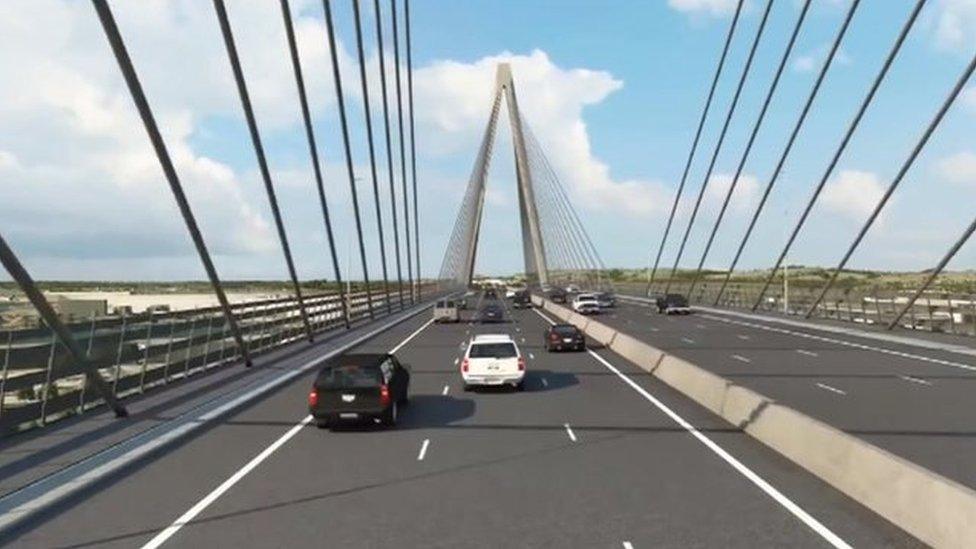
- Published23 March 2018
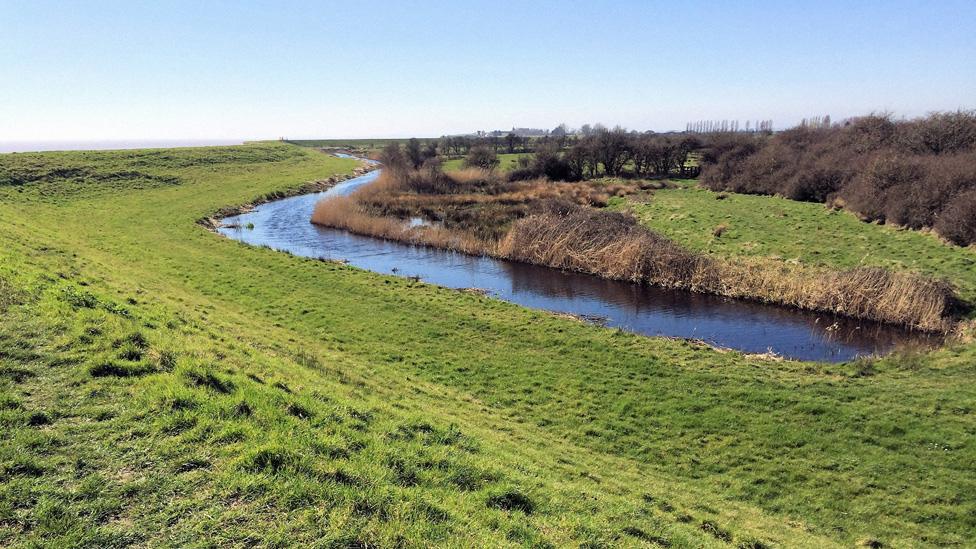
- Published17 January 2018
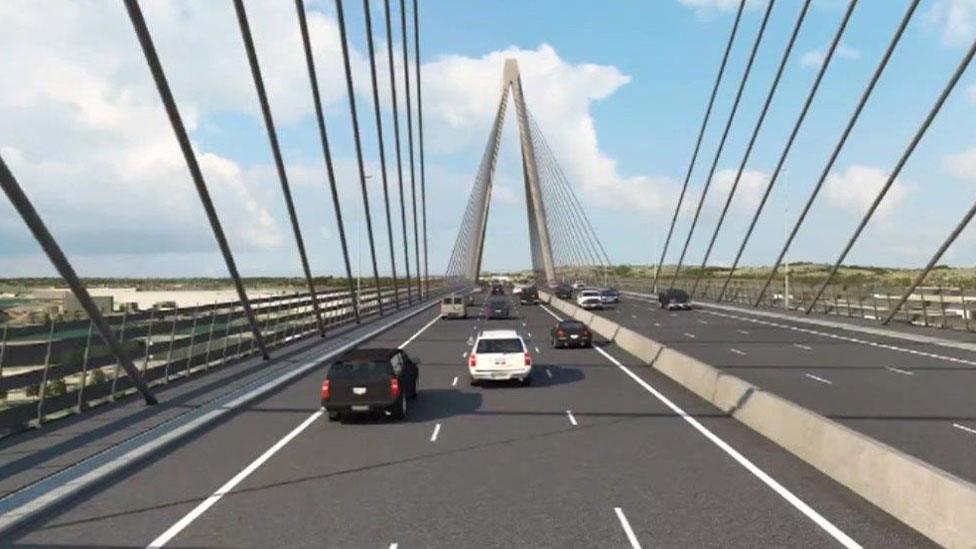
- Published23 January 2018
